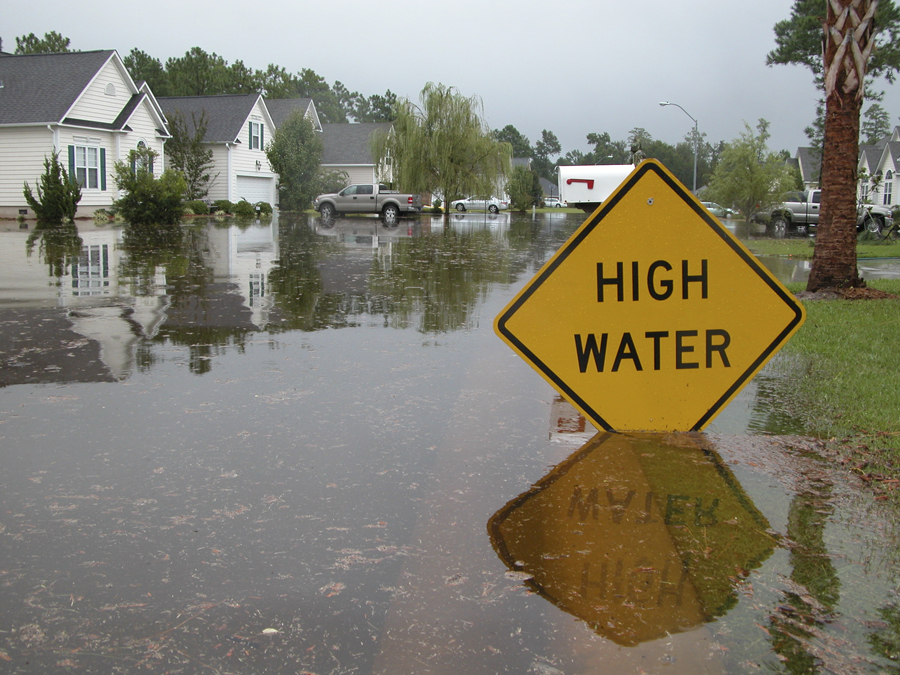Disaster Preparedness – Are your personal records safe?
September 23, 2014 by Carol Thompson, EA
It’s only September, and we've had floods, fires, tornadoes, ice storms, record snow, droughts, and hurricane season is coming soon. Other casualty losses can happen to taxpayers, such as a fire caused by a faulty heater or electrical problems. Do you have copies of your important documents in a safe place?
With all of the new technology available, the best way to keep most documents is electronically. Paperwork can be scanned or printed into pdf files and stored on disks or in the Cloud. If you use external disks, make sure a copy is somewhere other than your home or office, such as a safety deposit box. Once done, records should have an annual update.
- Tax Returns. Keep copies of at least 4 or 5 years of tax returns on PDF. The statute of limitations to audit a return is 3 years after the later of the filing deadline or actual date the return was filed for federal returns. Many states have a different statute of limitations, so be sure you know what that time frame is in your state. In the case of a disaster or casualty loss, there can be a net operating loss that is carried back two years, which can affect a return that is not within the statute.
- Personal Papers. Scan in your personal paperwork and keep it safe. This includes:
- Driver licenses, car registrations and titles.
- Current photos of vehicles updated at least annually for insurance.
- Social Security cards of the entire family.
- Birth certificates.
- Passports.
- Current photos of all members of the family – and family pets.
- Vet records for pets including shots and chip numbers.
- Lists of doctors and medical services for each person of the family as well as lists of medications for each.
- Fingerprint cards (available at many UPS shipping stores) – especially children.
- Insurance policies – health, auto, and life. At least the first few pages showing the name and phone number of the company, the policy number, and the agent.
- A list for each child with their schools, day care centers, baby sitters, and other contacts.
- Ask your dentists for a photocopy of each persons’ dental “map” that shows fillings, caps, crowns, and other work performed
- Real Property Paperwork:
- HUD-1 escrow forms for the purchase of your house and any subsequent refinances.
- HUD-1 escrow forms and refinancing for any rental, vacation, or second home properties.
- Lists, with receipts, by property of all improvements that are added to basis.
- The most current appraisal of the property – usually at the time of purchase or refinance.
- The tax assessment for the year of purchase and a current one
- Personal Property:
- Photos or film of the inside and outside of each property. Use your cell phone and back it up on your carrier’s web site. Be sure to open closets and drawers to show the personal property (bookcases, linens, kitchen gadgets, sporting goods, clothing, pet carriers, etc.). These are the most difficult records to reconstruct after a disaster. (As an example, go look in your kitchen gadget drawer for 10 seconds, close it, and see how many items you can write down.)
- Take photos of the serial numbers of large items such as televisions, DVRs, DVD players, bicycles, appliances, and other goods. Write the purchase date on the instruction manual and scan it in
- Investments:
- Scan in the annual brokerage reports showing your holdings and the current market value.
- Scan in your annual purchases of investments if not listed on annual statements.
- Scan in a current statement for all bank accounts. (You will have a record of the account number if you need to get money after the event.)
No one wants to reconstruct their life after a disaster. Being prepared ahead of time can save countless hours of reconstruction and emotional distress later.
For more information, go to www.IRS.gov and search “Disaster.”




